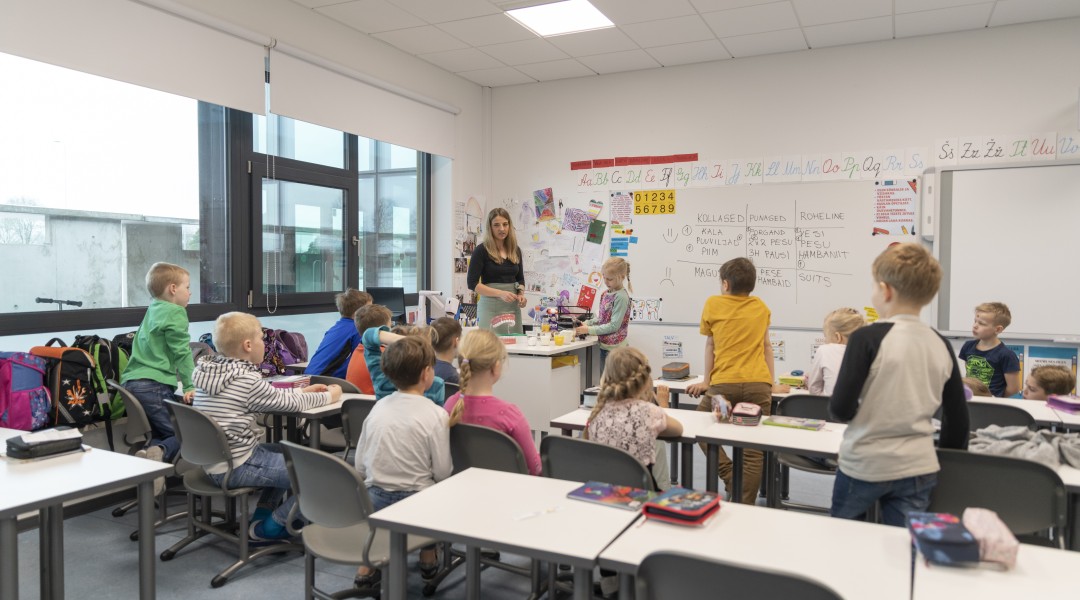"This will take us on a new path and, in ten years, hopefully to a future where we no longer segregate children in the education system by their home language, and everyone has equal opportunities to continue their studies and be successful in life," said Minister Kristina Kallas. "We have prepared for this reform for a long time and schools, school administrators and the state have made a joint effort. We will continue to work hard and implement this transition together."
The transition to Estonian-language education will begin in kindergartens and 1st and 4th grades from September 2024 and, according to the law, continue until 2030. 221 million euros have been planned in the state budget strategy for the years 2024-2027 for the implementation of the action plan for the transition to Estonian-language education, with an additional 28.6 million euros from external funds. In 2027-2030 the transition will be supported to the same extent. Several organisations like Institute of the Estonian Language, Education and Youth Board, Rajaleida, universities, Estonian Parents' Association, Unemployment Insurance Fund, Integration Foundation, VeniVidiVici, substitute teachers' NGO ASÕP and other partners are involved in activities supporting the transition.
For the transition to be successful, cooperation between schools and homes is essential. The Ministry has prepared guidelines for educational institutions on how to support children in kindergartens and students in schools, and what kind of support to offer parents.
When teaching a child whose mother tongue is not Estonian, it is crucial to give feedback to the child and the family. It is common for a child to enter a so-called silent period, where they gain knowledge but do not express it in any language. The silence period can last a week, a month or even much longer, and it is very important that teachers take this into account.
Parents may benefit from the information and advice provided by Rajaleidja; the seminars and informational materials of the Language Immersion Program’s Parents' Union; and the parents' academy meetings at the Narva College of University of Tartu.
To support teachers, lists of recommended study materials and practical and necessary materials have been compiled. For example, a list of recommended learning materials for transitioning kindergarten groups; a list of learning resources for Estonian as a second language on Sõnaveeb; e-Koolikott, which enables searches by keywords, such as integrated subject and language learning, language immersion, etc.
To ensure that all educational institutions have as much necessary information as possible to support all parties involved in the transition, the Ministry has compiled a comprehensive information letter with important references to various laws, language learning opportunities, methodology training, and other aspects related to the transition.
- The online version of the information letter sent by the Ministry.
- More information: hm.ee/uleminek
- Key activities in the academic year 2024/2025
